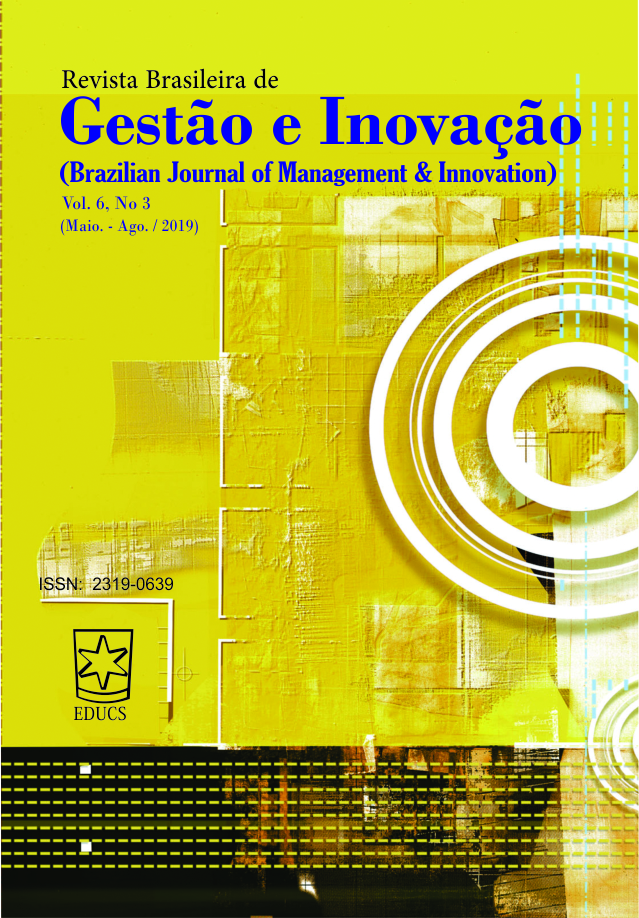UM ESTUDO BIBLIOMÉTRICO SOBRE AVALIAÇÃO DE DESEMPENHO NO PROCESSO DE DESENVOLVIMENTO ÁGIL DE SOFTWARE SOB A PERSPECTIVA DO CONSTRUTIVISMO | A BIBLIOMETRIC STUDY ON PERFORMANCE EVALUATION IN AGILE SOFTWARE DEVELOPMENT PROCESS FROM THE CONSTRUCTIVIST PERSPECTIVE
Keywords:
Avaliação de desempenho, Bibliometria, Proknow-C, Desenvolvimento ágil de softwareAbstract
O presente estudo propõe-se a apresentar um processo de seleção de artigos relevantes sobre a avaliação de desempenho no processo de desenvolvimento ágil de software a partir da perspectiva construtivista, estabelecendo um referencial que retrate uma amostra representativa do tema, respeitando-se aqui um critério devidamente estruturado. Nesta pesquisa, foi aplicada a metodologia ProKnow-C (Knowledge Development Process – Constructivist), que resultou na identificação de 18 artigos científicos alinhados com o tema e indexados por duas bases de dados internacionais (Scopus e ISI Web of Science) servindo como um portfólio referencial pela comprovação do seu reconhecimento científico. Diante dessa pesquisa observou-se que as publicações envolvendo a disciplina de avaliação de desempenho e a busca da agilidade nos projetos de software pela adoção de métodos ágeis são incipientes e ainda pouco explorados. O estudo bibliométrico permitiu, portanto, consolidar esse conjunto de artigos que contêm relevância científica, considerando pesquisas compreendidas entre os anos de 2006 e 2016, além de alguns clássicos teóricos, oportunizando que futuros pesquisadores possam desenvolver seus fundamentos a partir de uma coleção colaborativa de conhecimentos que sustentam o tema, definidos pela aplicabilidade de um processo construtivista estruturado, gerando conhecimento nos pesquisadores, reduzindo o uso da subjetividade e aleatoriedade durante o processo de identificação e revisão da literatura.
-----
DOI: 10.18226/23190639.v6n3.01
Ewerton Sacco Calvetti*, Universidade Federal de Santa Catarina (UFSC). Brasil.
E-mail: escalvetti@gmail.com
Rogério Tadeu de Oliveira Lacerda, Universidade Federal de Santa Catarina (UFSC). Brasil.
E-mail: rogerlacerda@gmail.com
Mayara Lucia Bernardes, Universidade Federal de Santa Catarina (UFSC). Brasil.
E-mail: mayaralbernardes@gmail.com
Submetido: Outubro 2017
Aceito: Julho 2018
*Contato para Correspondência
Downloads
Published
How to Cite
Issue
Section
License
The author must guarantee that:
- there is full consensus among all the coauthors in approving the final version of the document and its submission for publication.
- the work is original, and when the work and/or words from other people were used, they were properly acknowledged.
Plagiarism in all of its forms constitutes an unethical publication behavior and is unacceptable. Revista Brasileira de Gestão e Inovação has the right to use software or any other method of plagiarism detection.
All manuscripts submitted to RBGI - Revista Brasileira de Gestão e Inovação go through plagiarism and self-plagiarism identification. Plagiarism identified during the evaluation process will result in the filing of the submission. In case plagiarism is identified in a manuscript published in the journal, the Editor-in-Chief will conduct a preliminary investigation and, if necessary, will make a retraction.
This journal, following the recommendations of the Open Source movement, provides full open access to its content. By doing this, the authors keep all of their rights allowing Revista Brasileira de Gestão e Inovação to publish and make its articles available to the whole community.
RBGI - Revista Brasileira de Gestão e Inovação content is licensed under a Creative Commons Attribution 4.0 International License.
Any user has the right to:
- Share - copy, download, print or redistribute the material in any medium or format, linking to RBGI site.
- Adapt - remix, transform and build upon the material for any purpose, even commercially.
According to the following terms:
- Attribution - You must give appropriate credit, provide a link to the license, and indicate if changes were made. You may do so in any reasonable manner, but not in any way that suggests the licensor endorses you or your use.
- No additional restrictions - You may not apply legal terms or technological measures that legally restrict others from doing anything that the license permits.
#RBGI







